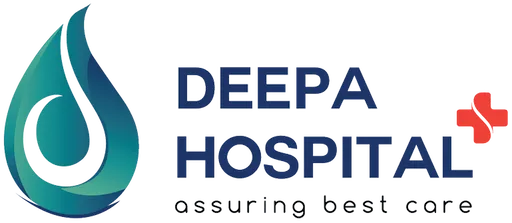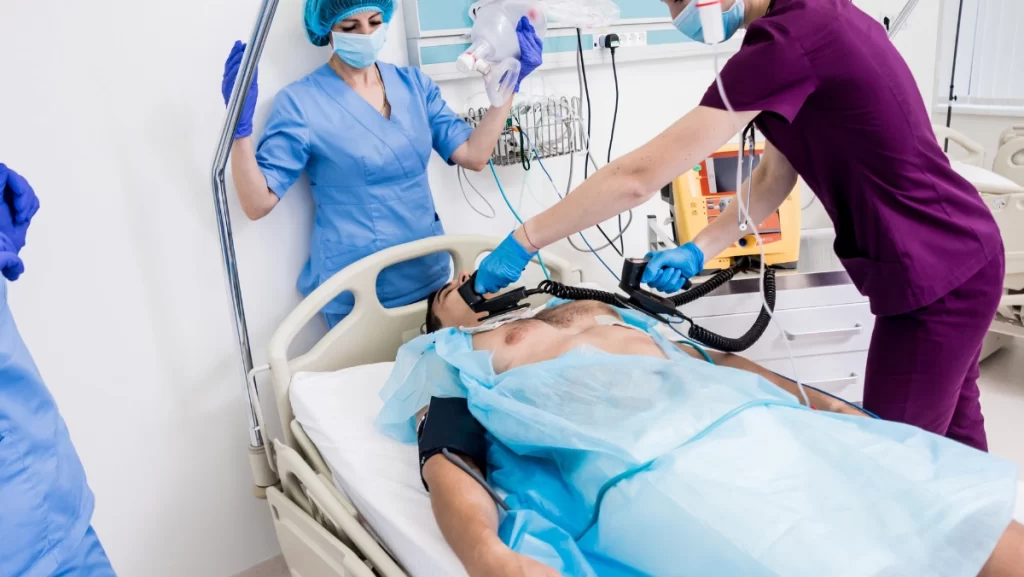Types of Medical Conditions
At Deepa Hospital, we understand that different medical conditions require specialized care. Therefore, we have various types of ICU and critical care in chennai units to cater to the diverse needs of our patients:
- Intensive Care Unit (ICU) in Hospital: This unit is designed to provide comprehensive care for patients with severe medical conditions that require constant monitoring and support.
- Cardiac Care Unit (CCU): This unit specializes in treating patients with severe cardiac conditions such as heart attacks, heart failure, and arrhythmias.
- Neonatal Intensive Care Unit (NICU): This unit is dedicated to the care of critically ill newborns, including premature babies and those with congenital conditions.
- Pediatric Intensive Care Unit (PICU): This unit provides specialized care for critically ill children and adolescents.
- Surgical Intensive Care Unit (SICU): This unit focuses on post-operative care for patients who have undergone major surgeries and require intensive monitoring and support.
Deepa Hospital is recognized as the top icu in Chennai, offering a full spectrum of critical care services to meet the highest standards of medical care.
Symptoms Indicating the Need for Critical Care
Recognizing when a patient requires critical care is crucial for timely intervention. Here are some common symptoms that may indicate the need for immediate medical attention:
- Severe Shortness of Breath: Difficulty breathing or feeling breathless even at rest can signify respiratory failure or other serious conditions.
- Uncontrolled Bleeding: Excessive bleeding that cannot be controlled can indicate a serious injury or medical emergency.
- Chest Pain or Discomfort: Persistent chest pain, especially if accompanied by sweating, nausea, or shortness of breath, may indicate a heart attack or other cardiovascular issues.
- Confusion or Altered Mental Status: Sudden changes in consciousness, confusion, or difficulty staying awake can be signs of a neurological emergency.
- High Fever: A fever that persists or is accompanied by severe pain may indicate a serious infection requiring immediate medical attention.
- Severe Abdominal Pain: Intense abdominal pain that comes on suddenly can suggest conditions such as appendicitis or pancreatitis.
If you notice any of these symptoms in yourself or someone else, it’s essential to seek help from Critical Care Services in Chennai immediately.
Our Treatment
Deepa Hospital is renowned for providing comprehensive critical care services in Chennai. With a team of experienced doctors, nurses, and paramedics, the hospital delivers personalized treatment plans for patients requiring intensive care. Key highlights include:
- 24/7 ICU Facilities: Equipped with advanced life-support systems and modern monitoring devices.
- Multidisciplinary Approach: Specialists from cardiology, pulmonology, and neurology collaborate for effective treatments.
- Emergency Response: Quick intervention in trauma and critical conditions ensures timely care.
The hospital’s commitment to delivering exceptional critical care in Chennai makes it a trusted choice for managing severe medical conditions. Treatments are supported by cutting-edge diagnostic tools and innovative therapies tailored to patient needs.
Patients at Deepa Hospital also benefit from compassionate care, a child-friendly approach in pediatric critical care, and counseling support for families. Ranked among the top ICU in Chennai, the hospital ensures that all treatments are aligned with global standards, prioritizing safety, comfort, and recovery.
Prevention of Critical Conditions
While not all critical situations can be prevented, certain lifestyle choices and proactive measures can significantly reduce the risk of developing conditions that require critical care:
- Maintain a Healthy Lifestyle: Regular exercise, a balanced diet, and avoiding smoking can help prevent chronic diseases that may lead to critical health issues.
- Regular Health Screenings: Regular check-ups and screenings can help identify risk factors for diseases early on, allowing for timely intervention.
- Manage Chronic Conditions: Effectively managing chronic conditions such as diabetes, hypertension, and heart disease can reduce the likelihood of complications that may require critical care.
- Follow Safety Protocols: Practice safety measures at home and work to prevent injuries. This includes using seat belts in vehicles, wearing helmets while biking, and following safety regulations in the workplace.
- Stay Informed About Health Risks: Being aware of family medical history and potential health risks can encourage proactive health management.
By taking these preventative steps, you can help protect yourself and your loved ones from conditions that may require admission to the Top ICU in Chennai.


